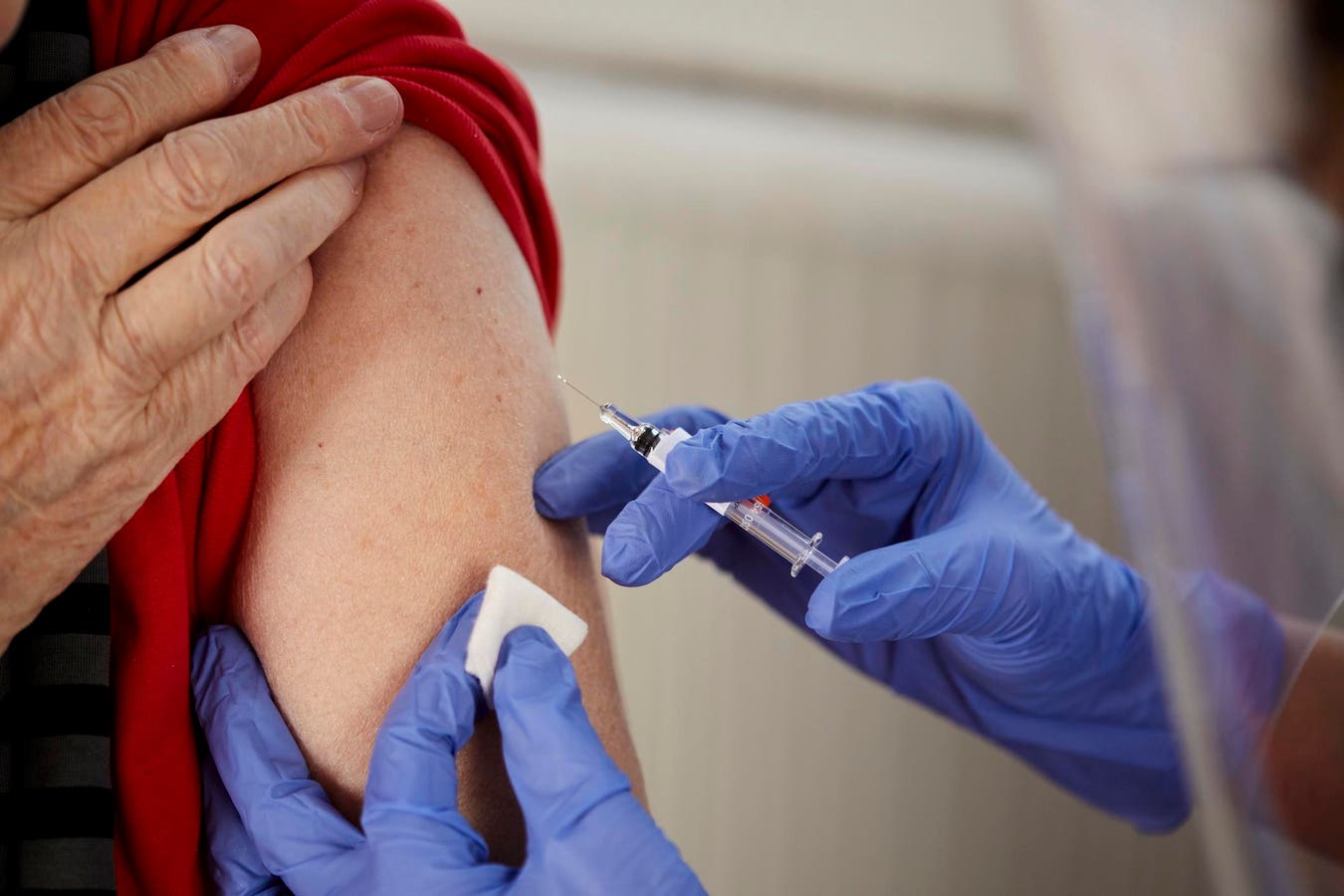Newly imposed limits on who’s eligible for COVID-19 vaccines are causing confusion.
getty
The Food and Drug Administration approved the next round of COVID-19 vaccines last week, but the agency imposed new age and health status restrictions on who’s eligible to receive them. For those who are ineligible but still wish to get vaccinated, there are considerable hurdles, including questions around insurance coverage. Even for some who are eligible, access will be limited in the short-term due to state regulations and the need for pharmacies wait for guidance from the Advisory Committee on Immunization Practices before moving ahead with vaccinations.
Until now, COVID-19 vaccines have been available in the United States to anyone 6 months and older regardless of their health status. But the agency is now restricting the updated shots to the elderly, ages 65 and above, or people between the age of six months and 64 who are at risk for serious complications from COVID-19 because they have at least one other health problem. Qualifying risk factors include among other diseases and conditions, asthma, depression, obesity and diabetes. Estimates suggest that between 100 and 200 million Americans will have access to vaccines owing to having at least one comorbidity.
Supporters of the new rules argue they reflect a consensus that routine (booster) vaccination may no longer be necessary for healthy younger adults and older children as they’ve built up strong immunity with a combination of prior vaccinations and infections.
Nevertheless, many experts oppose the changes, saying they’re not evidence-based and create unnecessary confusion around access. Specifically, the new policies are going to make it much harder for people who aren’t included in the allowable categories to get a booster if they wish to do so. Consider, for instance, that in most instances, pharmacists may not administer vaccinations off-label, meaning not within the limits set by FDA.
On the other hand, doctors may prescribe and administer the jab off-label or send in a prescription to a pharmacist to have them do it. However, there are other hoops one must go through, including having access to a physician. Former Surgeon General Jerome Adams tweeted that HHS Secretary Kennedy said that patients requesting a shot who do not fit in one of the FDA’s categories “need a doc consult for the updated Covid shot. Yet according to his own department’s data, ~11% of U.S. citizen adults are uninsured and lack access to a doctor. So it seems not everyone who wants a shot can get one.” And Kennedy has warned doctors and healthcare providers of liability in case they stray from federal recommendations pertaining to COVID-19 vaccines.
Even if a person who’s eligible for the shot wants one now, they may encounter access problems, at least in the short-term. At least a dozen states require pharmacists to provide immunizations in accordance with ACIP guidance. This is the panel that makes binding recommendations concerning vaccine coverage and use. Accordingly, CVS and Walgreen’s pharmacies announced they will not offer COVID vaccines in certain states until ACIP gives them a stamp of approval. The committee will meet on September 18th to decide on recommendations regarding the updated vaccines.
It’s unknown what ACIP will decide, but it’s highly unlikely to deviate from the FDA’s new labeling that no longer grants broad marketing authorization to all over the age of six months. Kennedy fired all 17 ACIP members in June and replaced them seven individuals, of whom several are like-minded vaccine skeptics and two have limited if any vaccine expertise.
Besides the above-mentioned issues, there’s the problem of insurance should you be able to get vaccinated. Insurers have said they would likely still cover the updated COVID shots through the end of this year, and this could include those being prescribed the vaccinations off-label. But it’s expected that insurance coverage will change starting in January 2026 when health plans offer new annual benefits. For vaccines, these will depend on the recommendations made by ACIP.
Those favoring changes in COVID-19 vaccine policy suggest it will align the U.S. with peer nations, such as Canada, the United Kingdom and Europe. In editorial in the New England Journal of Medicine this spring, FDA Commissioner Marty Makary and Director of the Center for Biologics Evaluation Vinay Prasad wrote that “while all other high-income nations confine vaccine recommendations to older adults (typically those older than 65 years of age), or those at high risk for severe Covid-19, the United States has adopted a one-size-fits-all regulatory framework and has granted broad marketing authorization to all Americans over the age of 6 months.” They argued in favor of introducing risk-based recommendations which are consistent with the limits just imposed by the FDA and will probably be adopted by CDC.
While risk-based guidelines exist among other comparably wealthy countries, a closer look indicates that what Makary and Prasad say isn’t entirely accurate. While there are European countries that have similar or even more restrictive recommendations (the United Kingdom, for instance) than what is now FDA policy in the U.S., others, however, have considerably broader recommendations.
Take, for example, guidance in Austria, Germany and The Netherlands.
Austria’s latest fall 2025 guidelines from its public health authority recommend annual COVID-19 boosters for all adults over the age of 60; pregnant women and anyone with “risk factors’;” all individuals working in the healthcare sector, regardless of age.
In The Netherlands, the public health agency recommends in the autumn of 2025 shots for all people over the age of 60; adults 50–59 years who are asked to get their seasonal flu vaccine annually; children and adults in “medical high-risk groups;” any healthcare workers who have direct contact with vulnerable patients.
Germany’s Robert Koch Institut recently posted its updated fall 2025 recommendations for annual vaccination, which include all persons over 60 years; persons with any relevant health risk aged six months and over; all residents of long-term care facilities; all medical and nursing staff with direct contact with patients or long-term facility residents.
Besides there being considerable variation in terms of COVID-19 vaccine policy among our peers, which makes claims about alignment dubious, there’s the issue of insurance coverage. In Canada and practically all European countries, regardless of age or health status, if you wish to get vaccinated you can do so at no cost to yourself. Access there isn’t the issue that it has now become in the U.S.









